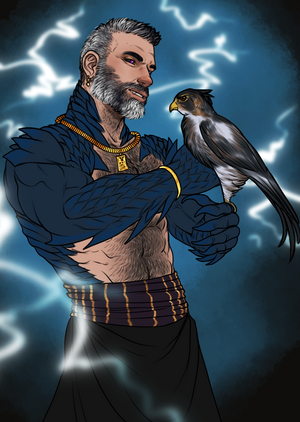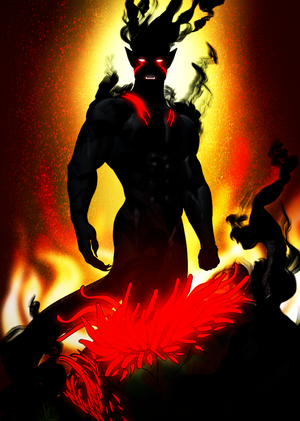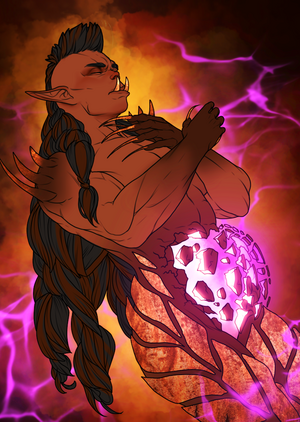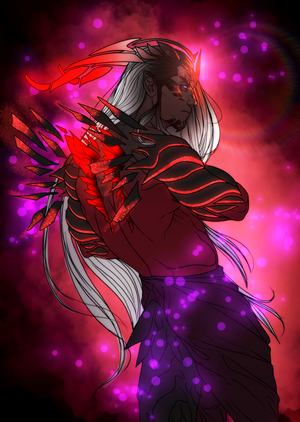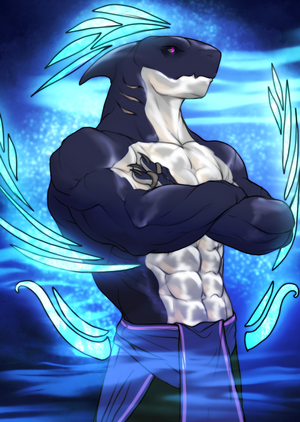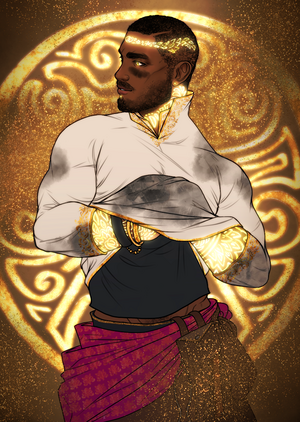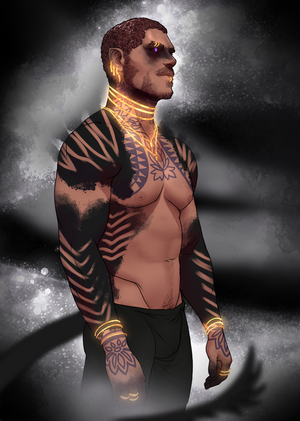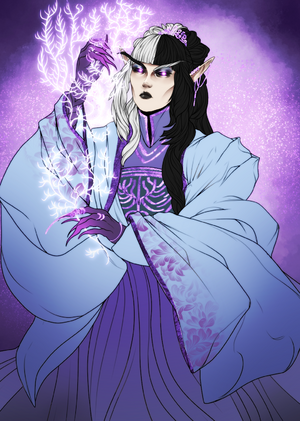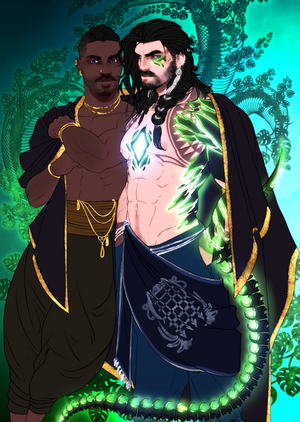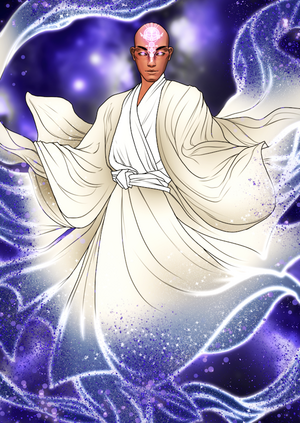Test1
| Test1 | |
|---|---|
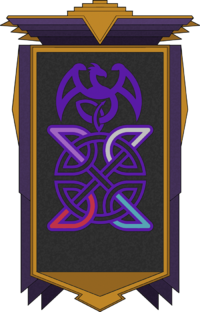 | |
| Religion | |
| Pronunciation | Dra-konism |
| Origins | Unknown, presumed over 70.000 years ago |
| Deities | |
| Regulus, Caius, Daiana, Triton, Nox, Marik, Severena, Aurora. | |
| Subsects | |
| N/A | |
Origins
Core Beliefs
At its simplest, Draconism is a religion that holds the Dragons as Gods, creators of the world, and all living things in it. Most religions acknowledge the existence of Dragons and their mechanical control over creation, but Draconism is the only Religion that focuses on the Draconic personas as divine paragons of virtue (and vice). Historically, Draconism was less of a Religion and more of a cult in which mortals projected certain values on the Dragons, that they loosely acknowledged but never fully invested in. Draconism was always a fairly light religion, as the Gods never reinforced religious Dogma, until The Advancement.
The Advancement
The Advancement is an event that occurred in 312 AC, when the Dragons committed to fulfill the functions of Gods for Draconism, rather than tacitly condoning its existence with occasional affirmation. The event that precipitated The Advancement was the death and rebirth of Caius, who after suffering 13,000 years from a consuming Void-sickness, finally died, and was reborn as Cinerius. With an impending religious schism in the already fracturing Draconic faith, the Dragon Regulus led a conclave of Dragons in which they agreed on new policies and dictates and created the Draconism afterlife while passing the will of the Gods down to all believers.
The Dragon Conclave
At a baseline, all Draconists should be inspired and live by the example of the virtues of their Gods. However, the Draconism Gods are divided over 3 distinct Pantheons of 4 Dragons each. Each Draconism worshiper chooses to belong to one of these Pantheons, and adopts their ideology on The Presence. The Presence is a new term used by the Dragons to refer to what they previously called The Infection, all things Magical and not of Aloria's reality. During The Advancement, the Dragons effectively abandoned full extermination of extraplanar Magic, but they still have different views on how to interact with things not of the world of Aloria. Individual virtues can be found on the God descriptions, the Pantheons are explained below. Note, there is a minor exception to all the below. Any Ordial-Aligned Person/Spirit that is somehow tied to the Malefica, Machinist, or Consigner, cannot be tolerated even by the Successors. Those Persons/Spirits must either be cleansed to be interacted with, or removed from Aloria and the living.
- The Consolidation is the Pantheon of the Dragon Gods Regulus, Triton, Marik, and Gaia. The Consolidation represents the desire to create space for The Presence, but with compromises.
- To resolve Spirits: The Consolidation supports Nature Binding of Spirits, but also insists on cleansing their Extraplanar Magic, or converting it to God Magic (Draconic Magic)
- To resolve Mages: The Consolidation supports the inclusion of Mages, but insists that under no circumstance Sinistral Magic is used, and those who do are Anathema.
- To resolve Afflicted: The Consolidation continues the fight against the Afflicted, believing them to have no place in the world of Aloria due to their nature.
- The Annexation is the Pantheon of the Dragon Gods Severena, Aurora, Nox, and Orion. The Annexation represents the desire to create space for The Presence, but only on their terms.
- To resolve Spirits: The Annexation supports Shard Binding of Spirits, which in turn shuts off all their Magic making them Mundane, an in essence Bound Automata.
- To resolve Mages: The Consolidation tolerates Mages, but insists on declaring Sinistral users Anathema, and also insist Magic usage is kept to an absolute minimum with no frivolous entertainment uses.
- To resolve Afflicted: The Annexation continues the fight against the Afflicted, believing them to have no place in the world of Aloria due to their nature.
- The Succession is the Pantheon of the Dragon Gods Cinerius, Umbra, Felicula, and Daiana. The Succession represents the desire to include The Presence in the fold with as few rules as possible.
- To resolve Spirits: The Succession supports Nature Binding of Spirits, and makes no further changes. Their only requirement is that Spirits accept real feelings and a consciousness.
- To resolve Mages: The Succession supports the inclusion of Mages with no requirement other than that they use Sinistral Magic only in desperation or need, and rely on Dragons to fix the damage to the world.
- To resolve Afflicted: The Succession supports fighting the Afflicted where they embody the sins of Draconism, but otherwise proposes compassion and forgiveness to cursed mortals.
Old Believers
Draconism has a variety of smaller regional Cults called Old Believers. The Old Believers hold onto the Draconism Radicals as they were before The Advancement. Choosing to play an Old Believer is not recommended, because it cuts a Character off from the other Draconism worshipers. Even though Old Believers are not strictly heretics, they might be excluded from social activities or Pantheon-related quests. Old Believer information is preserved specifically for Character who felt betrayed by The Advancement, or sensed a sinister intention in the actions of Umbra, and want to continue Caius's Burning Extermination.
Gods and Goddesses
Draconism has a total of 12 Gods, split equally over 3 Pantheons. Unlike Fornoss where it is possible to worship only one specific Pantheon, Draconists must worship all Gods of all Pantheons equally. They may however choose one specific Dragon God(dess) who they particularly feel represented by or connected with, and that will be their Patron God(dess). Conflict between Draconists generally speaking only exists on ideological lines with how to deal with Spirits/Mages/Afflicted, but this conflict should never be so deep as to fracture the believers. There is general permission for the faithful to disregard/refuse assistance/ridicule/denigrate if something happens that violates their Pantheon's Ideology, but they should never attack, exclude, or sabotage other Draconism worshipers outright.
Regulus, the Blue King Dragon
| Description | ||
| Virtues | ||
| Vices | ||
| Association |
Cinerius, the Red Passion Dragon
| Description | ||
| Virtues | ||
| Vices | ||
| Association |
Daiana, the Gray Dreaming Dragon
| Description | ||
| Virtues | ||
| Vices | ||
| Association |
Triton, the Black Chain Dragon
| Description | ||
| Virtues | ||
| Vices | ||
| Association |
Nox, the Teal Unseen Dragon
| Description | ||
| Virtues | ||
| Vices | ||
| Association |
Marik, the Brown Etherforge Dragon
| Description | ||
| Virtues | ||
| Vices | ||
| Association |
Umbra, the White Twilight Dragon
| Description | ||
| Virtues | ||
| Vices | ||
| Association |
Felicula, the Yellow Harmony Dragon
| Description | ||
| Virtues | ||
| Vices | ||
| Association |
Severena, the Green Stalwart Dragon
| Description | ||
| Virtues | ||
| Vices | ||
| Association |
Aurora, the Purple Creation Dragon
| Description | ||
| Virtues | ||
| Vices | ||
| Association |
Gaia, the Indigo Nature Dragon
| Description |
Gaia is not a Dragon exactly, but a mortal Aelrrigan Knight named Iorwerth (depicted right) who was an Archon serving the Dragons, carrying the soul of the dead Dragon Gaia. For centuries, Iorwerth was forced to serve the Malefica, one of the greatest unseen enemies of the Dragons, forced to conjure up vast magical structures, mazes, and fortresses for the Malefica and its Shades to use to deal death on mortals in the living world. He was forced to do this because his lover Cadell's (depicted left) soul had been captured by the Malefica, who used him as a bargain to string Iorwerth along. Through the intervention of mortals in Regalia, Iorwerth and Cadell were able to break free from the Malefica's control, and return to Aloria. There he rekindled with the Dragons he once served, but also still held the power of Ordial god-hood. For this, the Dragons tasked him to ascend to their pantheon by being the (somewhat reluctant) host of Gaia's Dragon Soulspark, a Dragon who had perished many centuries ago during the Denial of Immortality. While many of Iorwerth's structures still serve the Malefica, all have become overgrown with lush vines and the Lillies of the Valley, Iorwerth and Cadell's favorite flower. In this, Gaia's powers manifest as the Dragon of Nature, the other half of Aurora's Craters of Creation. While she created the living beings that inhabited nature, it was Gaia who created the plants and trees and flowers that decorate all the realms. Thus, carrying life and death in his body and his love by his side, Iorwerth is the Draconic God of Nature, tranquility, absolution, and redemption in rebirth. | |
| Virtues |
Virtue to Gaia (This God is both called Gaia and Iorwerth) is preserving balance of nature, in the give and take between the forces within an ecosystem, and preventing cascade collapse due to dying flora. From the smallest of maggots, to the largest of mammals, nature exists as the bedrock of life on Aloria. Iorwerth specifically adds to this, by making the act of redemption both in receiving and offering others the chance, a true virtue and to never give up in the face of even the most malicious of death-bound forces to return to a righted world and make amends. | |
| Vices |
Vices to Gaia, are the stupidity and naivety to outsmart forces greater in power than the self. In this, Iorwerth and Cadell's centuries-long imprisonment in the Beyond acts as a deterrent and a warning that evil forces are not interested in playing fair or honest, and that respecting duels or challenges of powerful entities is foolish. Iorwerth and Cadell express above all that it is a Vice to not seek help, to not ask for saving, and to foolhardy insist that the individual can overcome all trials and struggles alone. Gaia looks down on lone wolves who risk others with their own recklessness. | |
| Association |
Prior to merging with Iorwerth, Gaia was primarily seen and worshiped among the Dregodar Cults in the Allorn Empire, where he and Aurora were most visible to the Allorn Elves. Through some process that is not well understood today, Gaia and all other Nature Dragons were killed by the Allorn Elves, which caused the flight of Aurora and the Dregodar. Now, Gaia is more commonly associated with Kintyr and the Breizh people, due to Iorwerth and Callus's Breizh nature. Effigies to Gaia or Iorwerth are often placed in buildings built by Draconists, sometimes even secretly. |
Orion, the Ivory Cosmos Dragon
| Description |
Where Severena is both the spiritual and secular leader of the Sihai people, Orion functions like the exemplar spiritual ambition of the Sihai people. While Severena teaches the people detachment from material possession, attachment, and trauma, the worshipers acknowledge that Severena's functions in the world are rooted in attachment, and that she can never reach enlightened existence. Orion is however that enlightened existence made manifest. They are the only Dragon that exists outside of what Draconists call the Terrasphere, a boundary between the breathable air of Aloria, and the immaterial beyond in the cosmos. Orion is the Dragon of the stars and the Celestial Bodies (Planets, Moons, and Sun). They exist in a state of perpetual detachment from the events of Aloria itself, because they are not bound to it by any intention or purpose other than their loyalty and membership of the Draconic conclave. Historically this has meant that Orion was not traditionally present in the Draconist Pantheon, they were more a cultural symbol for the Sihai, but since The Advancement, Orion has taken a more direct role in the lives and virtues of mortals on Aloria. It was Orion whose sober detachment from the world, allowed for them to take on the task of creating and shepherding the afterlife of Draconism among the stars. They are the ferry-person who delicately fetches the wandering souls from the Soul River after they have passed on, and weaves stars and constellations as their souls are carried into the enlightened immaterial. In short summary, Orion has become the guardian of the Draconic afterlife. | |
| Virtues |
Orion is the patron of Draconism priests and mortuary people, those who perform rites for the dying and the dead, and those offering religious services. To many, their greatest quality is their detachment from material obsession, from desire to own and consume, or from holding on to painful memories and wishes of vengeance. Virtues to Orion, are charity in possessions, temperance in want, and forgiving of the wrongs that have been done to either the person themselves or society at large. A less common virtue, is the acceptance and inclusion of atheists to hold a protected place among Draconists. | |
| Vices |
Orion's greatest vice is directly related to Draconism as a religion itself. While other religions loosely acknowledge Dragons as the tenders of the material world's operating functions, their divinity is only acknowledged among Draconists. However, the fact that their Gods are ever-so-slightly more important than other Gods to the functioning of the world, breeds some kind of smugness or self-righteous superiority among the Draconism faithful. It is exactly this self-centered sense of superiority that is the greatest Vice that Orion speaks out against as the downfall of enlightenment. | |
| Association |
Orion's role is most prominent among the Sihai people in the east, but their presence can roughly be traced through nearly all Dragon-worshiping communities, including the early Aml Tribes in the Regalian Archipelago, the Dregodar Cults in the Allorn Empire, the Slizzar of Sarakand, and more. Due to the prevalence of cosmic symbolism and the stars in so many early cultures, Orion's name has been present and consistent among nearly all languages, being the one word that is universal everywhere. Orion has largely been absent from the world until recent, however. |
Priesthood
Marty to write explanation on how to be priest
Expanded Lore
The Expanded Lore section contains additional contextual information about the Draconist faith.
Festivals and Worship
The Draconism Expanded Page contains information on Draconism Holy days (one each month), as well as basic rituals performed by Draconism Priests for the faithful. This Page is useful to read for upcoming festivals, but is not necessary to fully explore unless an event is actually upcoming and pinned to the calendar. The bottom of the page contains information relevant to Draconism Priests.
The Advancement
Marty to write out a full narrative of the Advancement
The Immortal War
Contextualize the past===
Draconism Afterlife
Discuss the new Soul rivers
Trivia
- asdf
- asdf
- asdf
| ||||||||||
| Accreditation | |||||||
|---|---|---|---|---|---|---|---|
|
| ||||||
